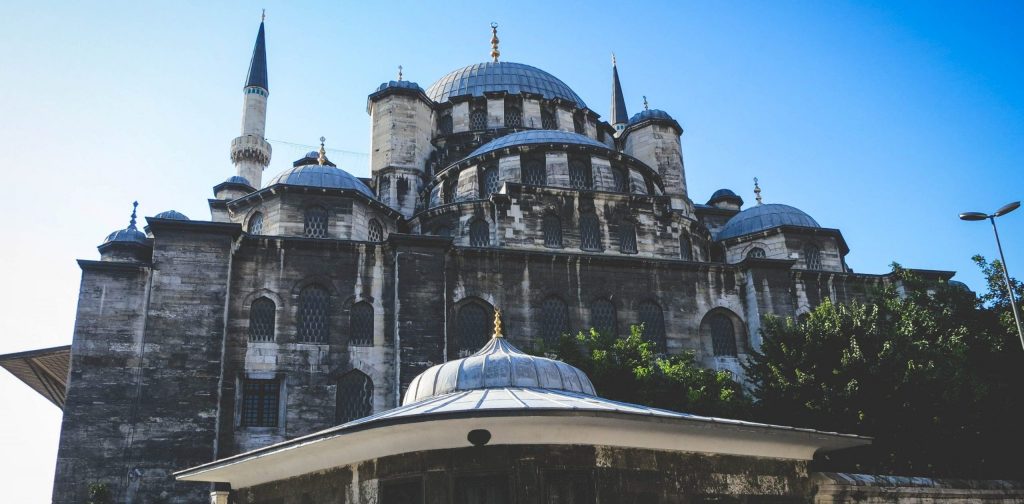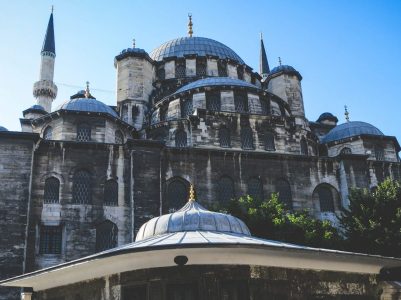Based on an Interview with Rabbi Pinchas Goldschmidt
We are living in a time of growing populism. With this growing populism, some of the fundamental rights and some of the fundamental values on which the European Union was built initially, are being questioned and being taken apart by populistic governments, populistic parties, that are trying to make life miserable for new immigrants and for people they see as not European or shall not be European.

Overview
If you look at the history of these laws, which initially started in Switzerland in 1895, it was an anti-immigration law, which tried to stop the migration of Russian Jews who were religious to Switzerland. Then, 1933 Nazi Germany tried to get rid of the Jews before they came up with the Final Solution. Before that, the idea was to get rid of the Jews by making them emigrate as fast as possible. They passed a law against Kosher preparation of meat, which, in hindsight, convinced many Jews to emigrate from Germany as fast as possible, and by the way, saved their lives afterwards from being sent to Nazi death camps. So today, we live in a new world and a new Europe where you have millions and millions, tens of millions of people of the Muslim faith, but who have made Europe their home. Some ultra-right parties, populistic parties in France and Holland and Germany and Austria and other places as well, which have decided they are going to fight it and by making life miserable for those new immigrants.
We Jews just became collateral damage. So, we think that this is an issue which is recurring, country after country in Europe. It was an issue with circumcision in Iceland and in Germany; it has come with ritual slaughter in Poland, and now, in Belgium and in Holland. We have to hear a magnified voice of united Europe. Romano Prodi, former President of the European Commission, called Europe a rainbow assembly of minorities; it doesn’t only apply to national minorities, but also sexual minorities and religious minorities. The idea of religious freedom is not that everybody has to agree with your religion; it is like what Voltaire said of the freedom of speech: “I totally disagree with what you’re doing, but we’re going to defend to the death your right to voice your opinion.” This applies to freedom of religion. Secular Europeans or Christian Europeans can say, we totally disagree with your religion or totally disagree with your religious practices. However, since religious freedom is one of the values and bases on which Europe was founded, we should do everything to grant religious freedom to minority religions.
For certain, I would say that the last century, the 20th century, was the secular century. It was the century in which secularism triumphed and religion was basically pushed aside from international politics. The secular religions of narcissism and communism, unfortunately, created more havoc, more death, and more misery in their countries and around the world, than all the religious wars put together in previous centuries.
The 21st century started with an epic moment. It was the attack against the Twin Towers in New York on 9/11. What this moment signified for the world was the reentry of religion into the main arena of world politics. Until then, issues were always around people, territories, political systems. Religion came back to the forefront. In that moment, governments and international organizations understood that without starting a dialogue, we’re dealing with religion as an issue. This is going to make life difficult for everyone concerned.
I think the European Union, as well as the World Economic Forum in Davos, and other international positions started to put much more emphasis on religious issues. Religion was no longer private (in a liberal democracy, it’s a private sphere for every citizen), but it became an issue of importance, which affected the security, the well-being, the economic well-being, as well as the security of every country in the world. Wars in the 21st century have been started on religious issues and not on territorial issues. I think that Europe as well as every other power in the world has to look at reality in the face and realize that religion is playing a growing role in world politics. It plays a growing role in the decisions people are making, political decisions people are making, and therefore, people should be educated and understand the issues. We need to solve these problems before they become burning issues and destroy what we can build together.
Current Freedom of Religion Issues
We have been involved with the Vice President Schina’s office regarding issues of religious freedom in Europe, which lately, has become a very precarious issue both for the Muslim and Jewish community in Europe. European communities have passed more and more restrictive laws against the religious practice of our communities. Right now, we also have a court case in Luxembourg in front of the High Court for Human Rights, reviewing the law which was passed in two regions of Belgium outlawing the religious practice of both the Muslim and the Jewish community in preparing meat according to the Kosher and Halal traditions. It is only natural that we would be working together in this regional meeting, consulting and preparing ourselves for this next G20 meeting.
The fact that we’re working together, the different religions working together, is not always easy. There is conflict in the Middle East. Notwithstanding this problem, it is remarkable to what extent the Muslim and Jewish communities have been able to sit down together and to work together to support each other, especially in the light of radical Islamic terrorism in Europe and the reaction of ultra, right wing terrorism against mosques and synagogues. When the moderates of each side sit together, we want to create here a place where every child can walk in the street, not fearing that he or she are going to be attacked by people from another minority or another ethnic group. When we sit together and decide that we are going to protect each other against hate speech and we are going to protect each other against Islamophobia and Antisemitism, I think this is the best way to work together.
Another big issue, which we are concerned about and working together on to combat is the abuse of social media platforms for terrorism, for hate speech, and for racism. We are in coordination with the leadership of the European Union and general prosecutors of many of the countries in Europe to make sure that social media is not going to become a main platform for those people who want to disseminate hate and racism and destroy the dream of a common home which we wanted to create in Europe after the terrible horrors of WWI and WWII.
The Importance of Disseminating Correct Information about Religions
The European Union was created, after learning the difficult lessons of WWI and WWII, and the ill-fated Versailles Treaty. Today, we live in a time when people have forgotten these lessons learned. Unfortunately, the generation which survived WWII and knew the lessons, what it means to live through a World War where everyone suffers, are not with us anymore. For the new generation, WWII and the Holocaust is just a part of history. People are much less interested in long-term solutions. People are only looking at populism.
Again, social media is playing a major role in disseminating information which is not checked. It used to be that every TV station, every newspaper had an editor. Today, the whole idea of social media is that there is no editing. If a person is reading some news item which was published by the Times of London, you can assume that at least a part of the story is true even though there might be some subjective views. Then, the person goes on social media and sees a post with some fabricated news story which has no basis in any reality. This misuse of information destroys the foundation of democracy, which is based on getting correct information, because we know one of the pillars of democracies is the freedom of information and this freedom of information has been totally abused.
I think Europe is going in a much better way than the United States. The United States took the issue of freedom of speech to extreme. Today, if a person in the United States is disseminating Antisemitic propaganda, a person can do it without any punishment. While in Europe, persons who deny the Holocaust or give the Hitler greeting are going to be put in jail. German or Austrian or European state authorities are trying to persecute those culpable, and they’re getting no response and no amount of help from big tech companies, like Facebook, Twitter and others. I think that Europe is doing the right thing. We should work together on this because at the end of the day, this new social media has totally changed the world. We cannot use all the presumptions we used for printed media and for TV media of the past. Media has changed with the world. The laws need to be there to secure our institutions, to secure our people, and to secure our future.
There are a few vehicles in the European Union which are created to be in touch with religious leaders. You have Article 17 of the European constitution; you have the example of the Vice President of the European Commission in charge of being in touch with the leaders of civil society and religious groups. There are vehicles and institutions and platforms created for our religious leaders to make themselves heard. They must just learn how to use it and make sure that those are the concerns and the voices that Europeans who see themselves as religious people hear.
I can tell you personally that I was happy to receive the personal invitation to join the G20 in Riyadh. You know that having a rabbi be invited by Saudi Arabia was something which I think five years ago or ten years ago would have been an impossibility. It shows to what extent the world has changed. Not long ago, we celebrated the creation of a Jewish community in another Gulf state, in the Emirates, and Pope Francis was invited for the first time. As the people of the world have learned the lessons of the past, they should try to become more accommodating, more confident, more liberal. I think that Europe should lead the way.
Rabbi Pinchas Goldschmidt is President of the Conference of European Rabbis, Chief Rabbi of Moscow, and a guest speaker at the European Regional Meeting for G20 Interfaith Forum in 2020.
Edited by Marianna Richardson and Brayden Walters


